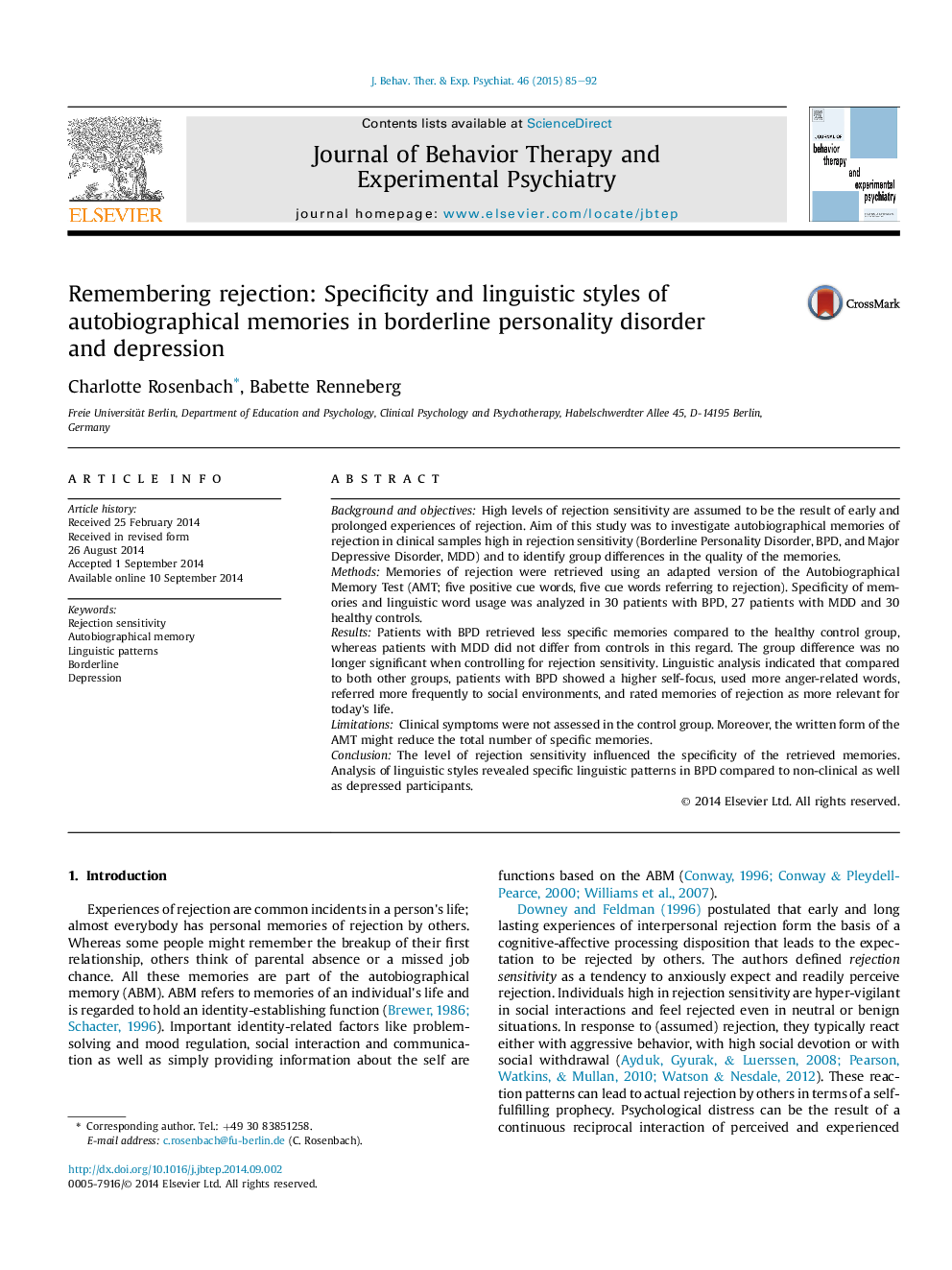| Article ID | Journal | Published Year | Pages | File Type |
|---|---|---|---|---|
| 910347 | Journal of Behavior Therapy and Experimental Psychiatry | 2015 | 8 Pages |
•The degree of rejection sensitivity is related to the specificity of memories.•Patients with BPD revealed a lack of specificity in autobiographical memories.•Linguistic styles in BPD regarding experiences of rejection emphasize disorder-specific cognitive and behavioral patterns.•Patients with BPD ascribe a high relevance to experiences of rejection for today's life.
Background and objectivesHigh levels of rejection sensitivity are assumed to be the result of early and prolonged experiences of rejection. Aim of this study was to investigate autobiographical memories of rejection in clinical samples high in rejection sensitivity (Borderline Personality Disorder, BPD, and Major Depressive Disorder, MDD) and to identify group differences in the quality of the memories.MethodsMemories of rejection were retrieved using an adapted version of the Autobiographical Memory Test (AMT; five positive cue words, five cue words referring to rejection). Specificity of memories and linguistic word usage was analyzed in 30 patients with BPD, 27 patients with MDD and 30 healthy controls.ResultsPatients with BPD retrieved less specific memories compared to the healthy control group, whereas patients with MDD did not differ from controls in this regard. The group difference was no longer significant when controlling for rejection sensitivity. Linguistic analysis indicated that compared to both other groups, patients with BPD showed a higher self-focus, used more anger-related words, referred more frequently to social environments, and rated memories of rejection as more relevant for today's life.LimitationsClinical symptoms were not assessed in the control group. Moreover, the written form of the AMT might reduce the total number of specific memories.ConclusionThe level of rejection sensitivity influenced the specificity of the retrieved memories. Analysis of linguistic styles revealed specific linguistic patterns in BPD compared to non-clinical as well as depressed participants.
